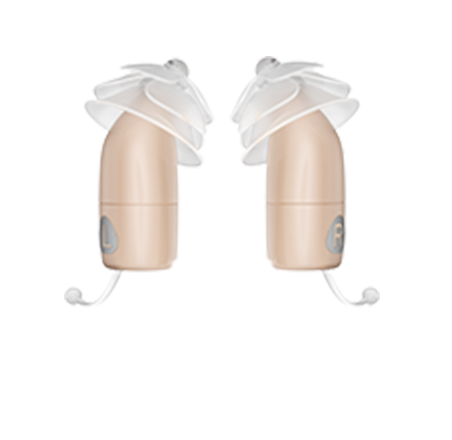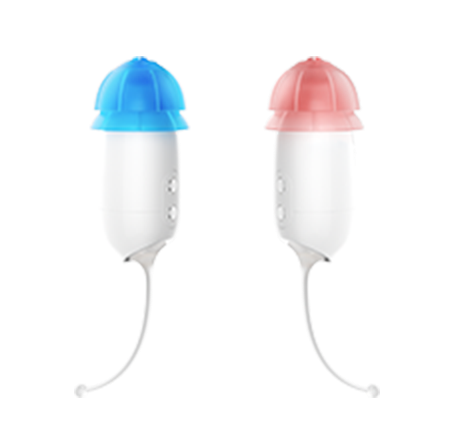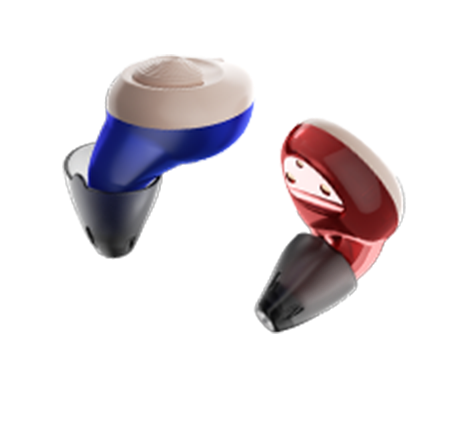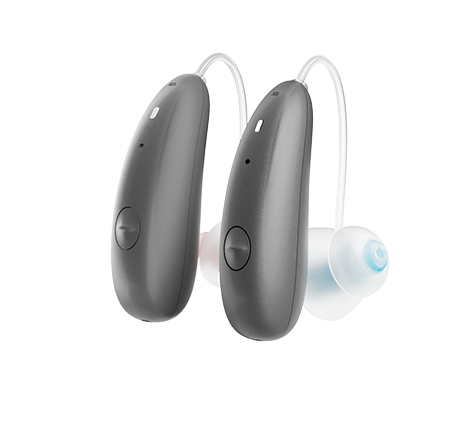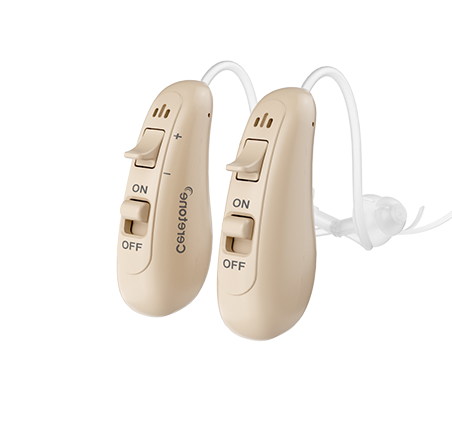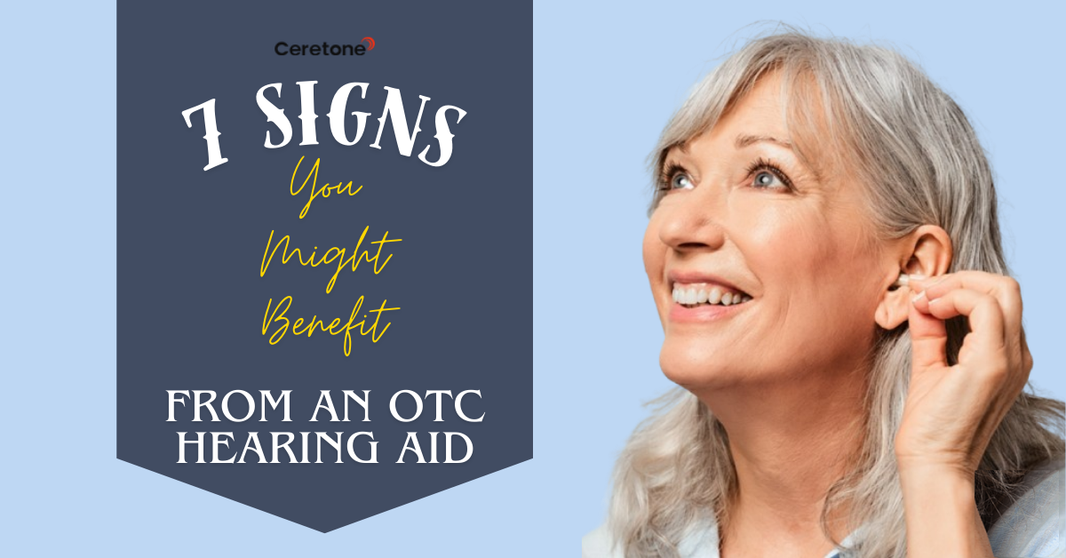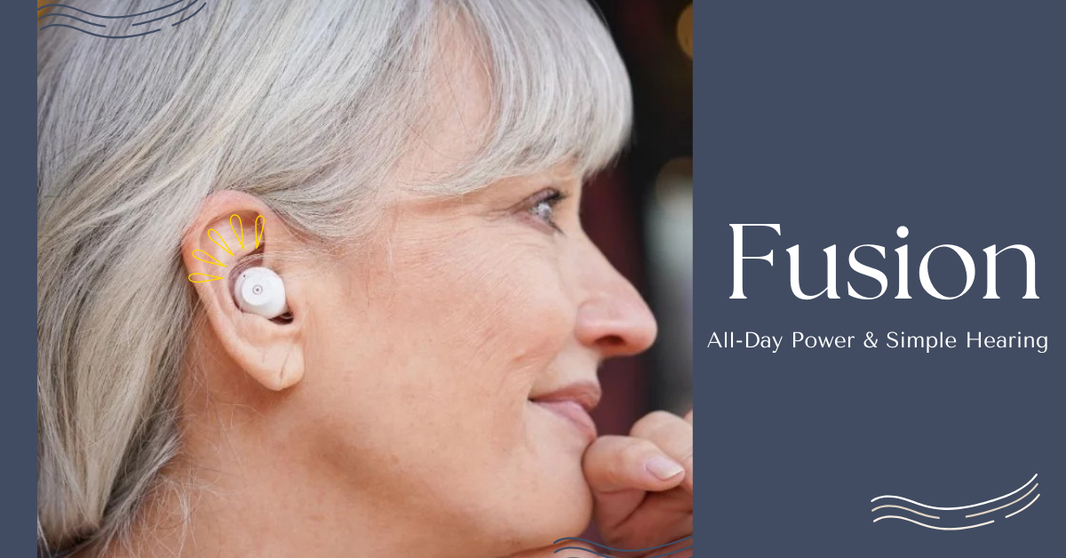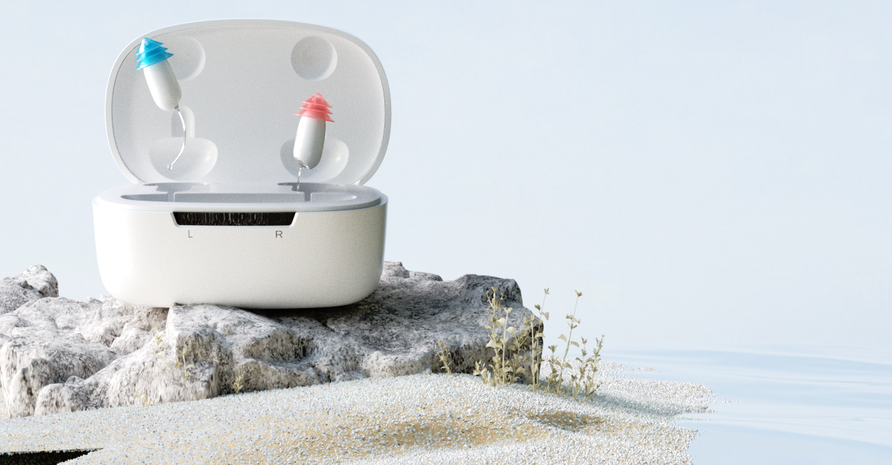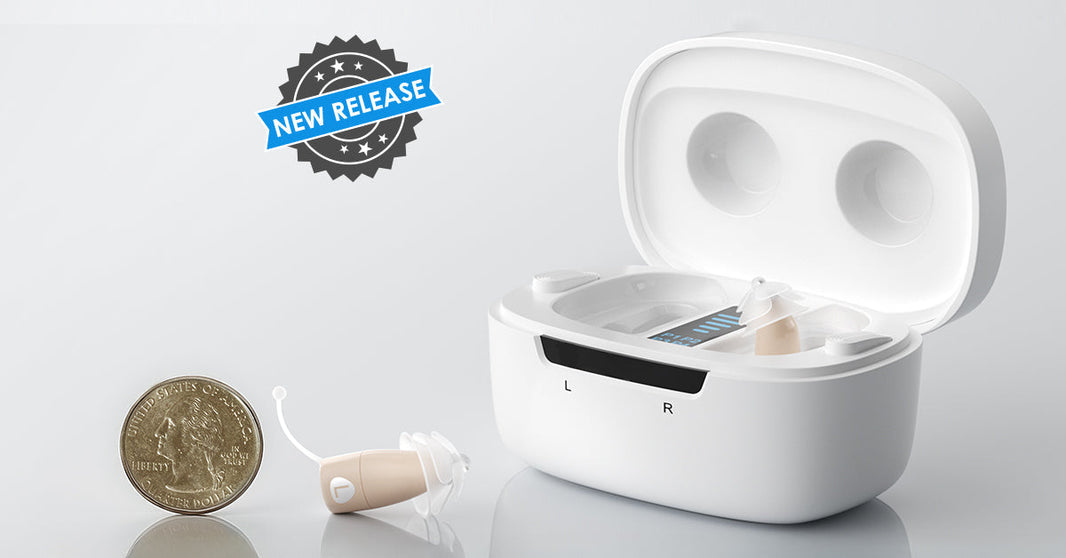
Noise Cancelling Hearing Aids Technology & Best Options in 2025
Noise cancelling hearing aids minimize background noise by up to 4.2dB by reducing noise and amplifying speech frequencies. They make it much easier for people suffering from hearing loss to understand speech in noisy environments. In this article, we'll dive into how noise cancelling hearing aids work and the best options on the market, including the Ceretone Beacon hearing aids with bluetooth and noise cancelling.
What Are Noise-Cancelling Hearing Aids?

Noise cancelling hearing aids are hearing aids that reduce background noise to clarify speech. They keep loud noises at comfortable low levels and make it easy to hear other people in noisy environments.
Many people with hearing loss find it difficult to filter speech in noisy areas like clubs and restaurants. Hearing aids with noise canceling features use modulation-based systems to minimize background, impulse, and wind noises.
Most hearing aids have some level of background noise reduction. However, some offer advanced features like active noise cancellation and directional microphones.
How Do Noise Cancelling Hearing Aids Work?
Noise cancelling hearing aids use modulation-based systems to reduce background noise since most noise travels on frequencies different from speech.
When the microphones on hearing aids pick up external sounds, the digital processor analyzes them to determine the specific background noise frequencies to target. Then, it reduces the volume of those frequencies so that speech can stand out.
Another method is to cancel out the noise. Once a hearing aid detects noise, it produces another sound phase inverted by 180°. That new sound cancels out the noise, which reduces the background sounds you hear overall.
Advanced hearing aids can also selectively amplify speech frequencies to increase speech loudness. In environments with no speech, the hearing aid will reduce the sounds generally to keep the volume comfortable.
Furthermore, noise-cancelling hearing aids use directional microphones to focus on sounds from a particular direction. For instance, they amplify speech coming from in front of you when you're conversing with someone.
Advanced hearing aids have several frequency channels that they target so that the overall background noise reduction is more complete and adequate.
Does Active Noise Cancelling Protect Hearing?

Yes, active noise cancellation protects hearing because it automatically muffles loud noises that otherwise hurt hearing. Most hearing loss is caused by prolonged exposure to loud noises that damage hair cells in the inner ear, making it difficult to send sound signals to the brain.
With active noise cancellation, the hearing aid automatically lowers noise decibels coming into the ear. By protecting the user from loud noises that may damage the hair cells, they protect the user's hearing.
Best Hearing Aid to Reduce Background Noise
There are tons of noise-canceling hearing aids available. In fact, most hearing aids have some form of noise reduction built-in. However, when it comes to noise cancellation, the following are the best hearing aids to reduce background noise:
Core One OTC Hearing Aids

Core One, the smallest hearing aid in the world, offers several noise cancellation techniques to ensure clear audio and minimal noise.
First is its adaptive noise cancellation, which constantly filters noise using an adaptive filter in different environments. It generates 180-degree phase-inverted sounds to cancel out noise and improve clarity.
Core One also has dynamic noise reduction for minimizing background noise. The hearing aid uses wide dynamic range compression across 16 sound frequencies to achieve even better sound clarity.
Finally, you can select either the preset standard or restaurant hearing mode from the Core One mobile app, which is compatible with both Android and iOS.
Aside from excellent noise cancellation, Core One’s lightweight CIC design allows for discreet and comfortable wearing periods. The hearing aid is also rated IP66 waterproof.
|
Pros |
Cons |
|
Core One employs several noise reduction technologies, including adaptive noise cancellation, dynamic noise reduction, and wide dynamic range compression. |
Core One isn’t recommended for severe hearing loss. |
|
It monitors noise across 16 sound frequency channels. |
It doesn’t have directional microphones. |
|
Core One is highly discreet due to its CIC design. |
|
|
It allows you to select preset hearing modes in its Android and iOS-compatible mobile app. |
|
|
The hearing aid lasts 13 hours on a single charge and provides up to 78 hours via its portable rechargeable case. |
Our Verdict:
Core One are over-the-counter hearing aids perfect for mild to moderate hearing loss, providing excellent background noise cancellation at a very affordable price. Get a pair of Core One hearing aids today risk-free. You can try them for 60 days.
Ceretone Beacon OTC Hearing Aids
Ceretone Beacon is an over-the-counter RIC Bluetooth noise cancellation hearing aid that offers superb background noise reduction at an affordable price. Like Core One, Beacon also has adaptive noise cancellation, wide dynamic range compression across 16 channels, and dynamic noise reduction.
However, Beacon goes further to offer speakers optimized for human speech so that you get even better clarity. The hearing aids’ RIC design, coupled with advanced processing algorithms, leads to superb feedback suppression—therefore, no annoying hearing aid whistling sound.
Finally, Beacon offers five hearing presets — normal, outdoor, restaurant, music, and custom hearing modes for better sound clarity.
|
Pros |
Cons |
|
Beacon supports adaptive noise cancellation, dynamic noise reduction, and wide dynamic range compression. |
Beacon is not optimized for severe hearing loss. |
|
The hearing aids have Features Knows speakers optimized for the human voice. |
|
|
The RIC design allows for natural sounds and minimized feedback. |
|
|
You get to pick from 4 hearing presets and create a custom hearing mode. |
|
|
You get up to 15 hours on a single charge and three extra charges via the rechargeable case. |
|
|
Beacon supports Bluetooth connection to both Android and iOS devices. |
Our Verdict:
Beacon is the best option if you want over-the-counter noise-cancellation hearing aids supporting Bluetooth for music and video streaming. Get Beacon at a discount today to try them risk-free for 60 days.
Resound NEXIA (Prescription)

Resound NEXIA is a prescription RIC hearing aid with advanced background noise cancellation. The best part is that it’s perfect for mild to severe hearing loss.
NEXIA’s standout noise reduction features are its 360 All Around and FrontFocus technologies that use directional microphones to pick up and enhance the sounds you want to hear. It also uses its advanced digital chip to continuously monitor the sounds your hearing aids pick up to minimize background noise better.
Read more: OTC Hearing Aids vs Prescription - The Hearing Aid Revolution
|
Pros |
Cons |
|
Resound NEXIA uses directional microphones to reduce background noise. |
Resound NEXIA is on the expensive side. |
|
It works for people suffering from mild to severe hearing loss. |
It doesn’t have a rechargeable case. |
|
It supports CROS/BICROS for people suffering hearing loss in one ear. |
|
|
NEXIA supports up to 30 hours on a single charge. |
Our Verdict:
Resound NEXIA is one of the best hearing aids for background noise. It works for people who have severe hearing loss who want to get clear, crisp hearing with very minimal background noise.
Who Should Look for Hearing Aids With Background Noise Reduction?
People who struggle to hear others in noisy places should get hearing aids with background noise reduction because they lower noise volumes and amplify soft sounds. Feel free to confirm your best option from an audiologist first.
Hearing Aid Compatibility vs Phone Noise Cancellation
When you're wearing hearing aids and using mobile phones at the same time, your hearing aids may pick up acoustic noise coming from the phone. This interference usually manifests as an annoying buzzing or whistling sound in the hearing aid.
However, hearing aid compatible cell phones have microphones compatible with your hearing aids, meaning the feedback or annoying buzz sound is minimized. Also, some mobile phones are T-coil compatible, allowing you to receive phone calls directly through your hearing aid.
Therefore, whenever you're in the market for mobile phones, ensure to pick one that's hearing aid compatible. The FCC marks a phone as hearing aid compatible if it's rated at least M3 for acoustic coupling and T3 for inductive coupling.
Get an Affordable Noise Cancellation Hearing Aid Today
A study confirmed that most hearing aid users prefer noise reduction enabled hearing aids. The reasons are simple. First, you'll find it easy to hear people in noisy areas. Second, your hearing aids will keep loud noises at comfortable levels.
Check out Ceretone’s Beacon, a Bluetooth-enabled hearing aid with noise-cancelling features. If you get them today, you can try them for 60 days and enjoy a one-year warranty. What're you waiting for?
